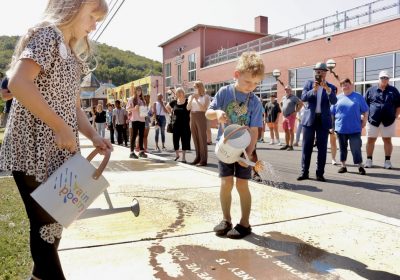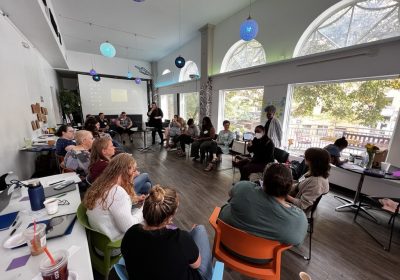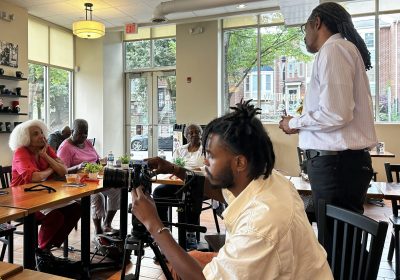By Karen Price
The pandemic hit when Emma Stasiak was in eighth grade.
The school year ended with her teachers posting daily assignments to Google Classroom. There was no physical contact with them or her classmates.
She started ninth grade in person, but that year wasn’t easy, either. If someone contracted COVID either the school shut down or students had to quarantine. She spent Thanksgiving in her room, quarantining after an exposure, interacting with her family on Zoom.
“I’d turn on my mic and say, ‘Can I have another roll, please?’” said Stasiak, now a 16-year-old sophomore. “It was like a very sad room service.”
As hard as the pandemic has been on everyone, Cambria County librarian Joyce Homan believes it’s been much harder on teens. That’s why this year she and facilitator April Cox plan to make the Teen Reading Lounge program, of which Stasiak is a part, a refuge where young people can have downtime, connectivity, communication with one another, and a break from the challenges of life.
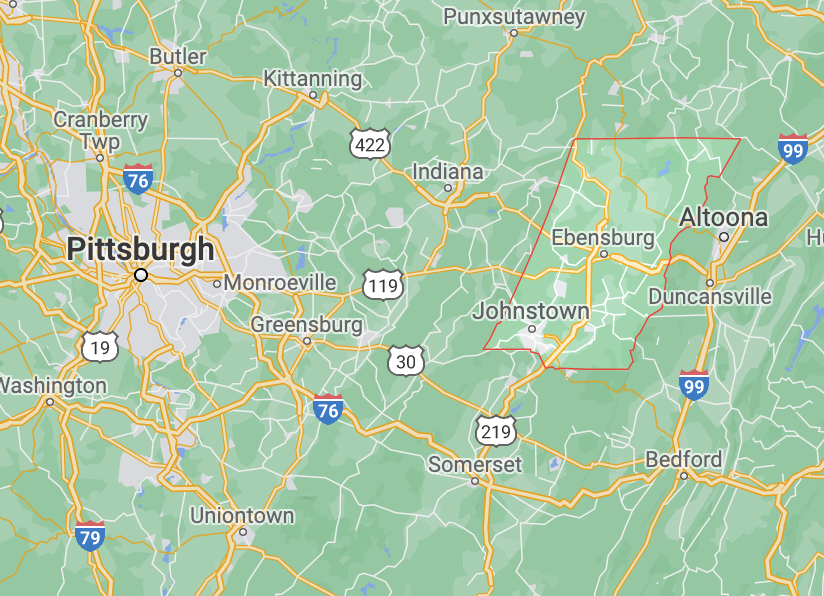
“We really talked a lot about creating community and creating a safe space for them to be able to process things without it being too much or too daunting because we know they’re already going through a lot,” Cox said. “No one’s going through an easy time during the pandemic, and we (want to) create a way to meet them organically where they’re at and allow them to develop and process those things. I feel like one of the best ways to do that is through creating this sense of community so we can have real conversations with them as they arise and move forward from there.”
Founded by PA Humanities 10 years ago, Teen Reading Lounge (TRL) is much more than a traditional book club. Developed alongside artists, educators, humanities scholars and library professionals, the award-winning program uses the humanities as a tool to promote positive youth development, build critical social emotional learning skills, give teens the power to explore what matters to them and be inspired to take action.
All that can be challenging, however, in a virtual environment.
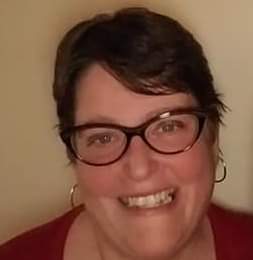
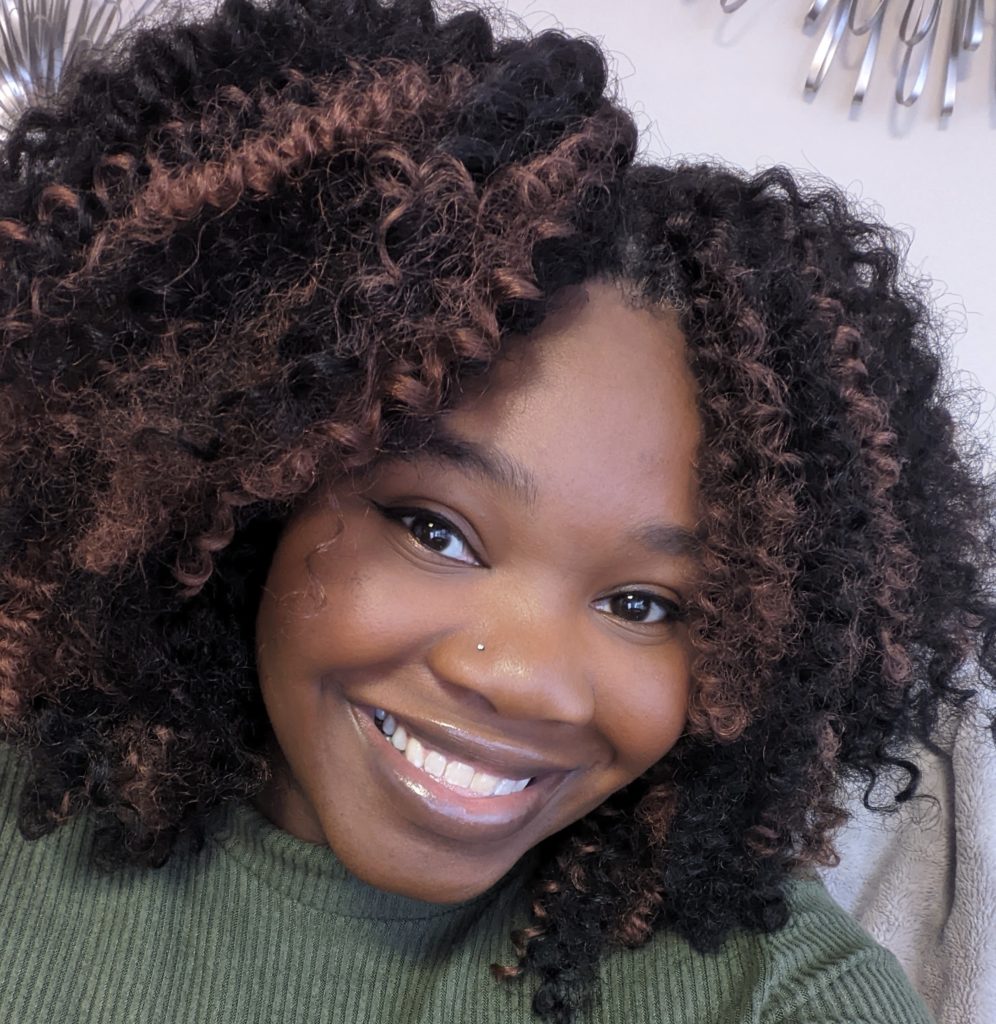
When Cambria County’s TRL program shifted online, Homan and Cox didn’t want it to become just another chunk of time in front of a computer for the youth they serve. They also knew that in order to have the deeper conversations at the core of the program, they needed to build trust and connection among teens who were experiencing disruptions in education and isolation from friends and family, and witnessing hostility and violence in matters of racial and social justice.
“When we’re talking about these political issues, these social issues, that we feel passionately about and that we know the teens feel passionately about, to create that space you really have to know each other,” Homan said. “It’s very difficult to just sit down, especially across a computer, and say, ‘Well, I don’t really know this person but we’re going to dive into these difficult issues.’ You have to create something, some kind of environment that feels like community, that feels comfortable, that feels like you’re safe to share here.”
To do that, they got creative.
When they discussed the book “Good and Cheap: Eat Well on $4/Day” by food justice advocate Leanne Brown, they gathered virtually for an online cooking class and learned to make dumplings. Another “out-of-the-box” activity was a virtual escape room that allowed the teens to interact and just have fun while at the same time getting to know one another better.
“You have to create something, some kind of environment that feels like community, that feels comfortable, that feels like you’re safe to share here.”
Joyce Homan, Cambria County librarian
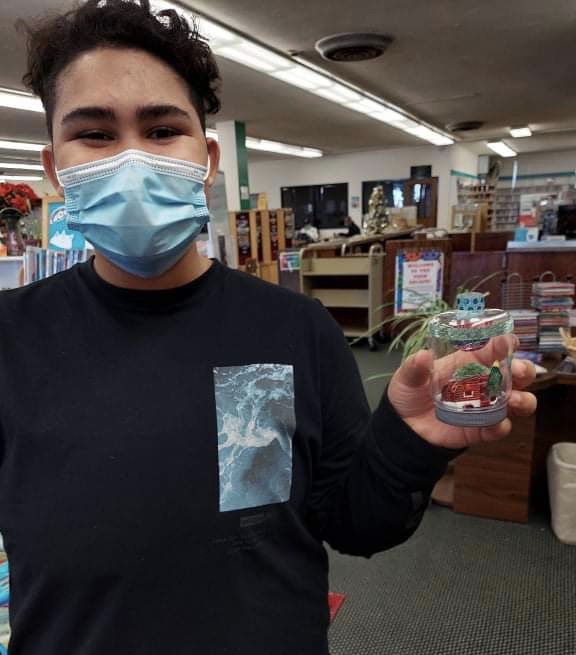
“The kids are able to have these moments where they’re able to connect, so that when we do come back to the deeper conversations, now they feel more comfortable with one another because this isn’t just some random kid they joined a book club with,” Cox said.
Evan Gates, 15, learned about TRL from his school librarian and joined last year. He loved the idea of reading and discussing books with other people his age outside of school.
“It’s more fun to analyze the characters and analyze the book and talk about your favorite parts without it being an assignment,” he said. “It’s something you want to do. It’s a fun thing for people who like reading. When you’re at school you don’t have a say in what you’re reading, either, but Miss Joyce lets us request things and usually we’re all agreeing on the books we’re going to read. It’s a lot more fun than it would be in a normal English class.”
A big part of TRL’s methodology involves inviting the youth to lead activities and share decision-making in order to build agency and increase engagement. When it comes to selecting books, Homan and Cox make suggestions but ultimately the teens choose what they read. They also ask for the teens’ opinions and feedback on activities and give them an active role in the meetings.
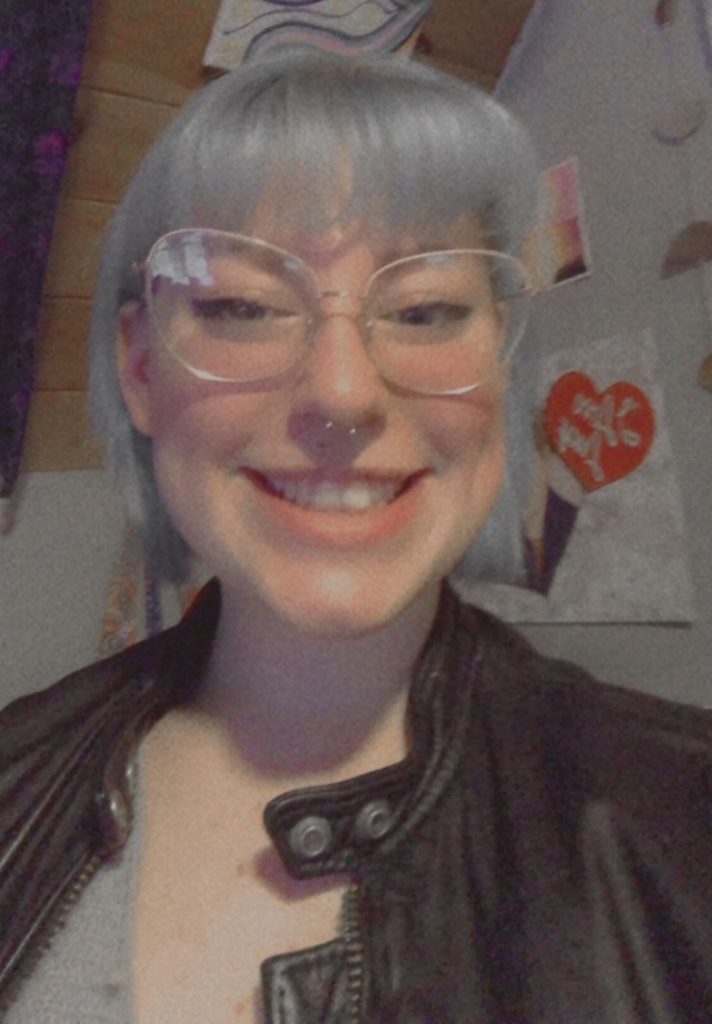
Stasiak appreciates that aspect of the program.
“It feels empowering to me because a lot of adults don’t trust in kids as much as I feel they should,” she said. “It’s really nice to be able to do stuff for an adult who trusts my decisions and will listen to what I say without interrupting me.”
In their reading choices, the teens tend toward fantasy and superheroes, which Homan said is actually a great way to introduce social issues.
For example, Cox said, Brigid Kemmerer’s young adult novel “A Curse So Dark and Lonely” is very fantasy-driven and similar to “Beauty and the Beast,” and features a lead character who has cerebral palsy. That led to a conversation about power and ableism.
Their discussion on “Steelheart” by Brandon Sanderson, another science fiction/fantasy novel, led to a conversation about the perception of good and evil and how people may not always fit into the categories you initially think.
“It was a really cool book about superheroes taking over the world, but the thing was, you thought they were superheroes but they were more like dictators ruling over sections and getting in fights,” Gates said. “The main character was this kid without any powers or anything, and he joins this group trying to take over the superheroes and bring them down so everyone can live normally.”
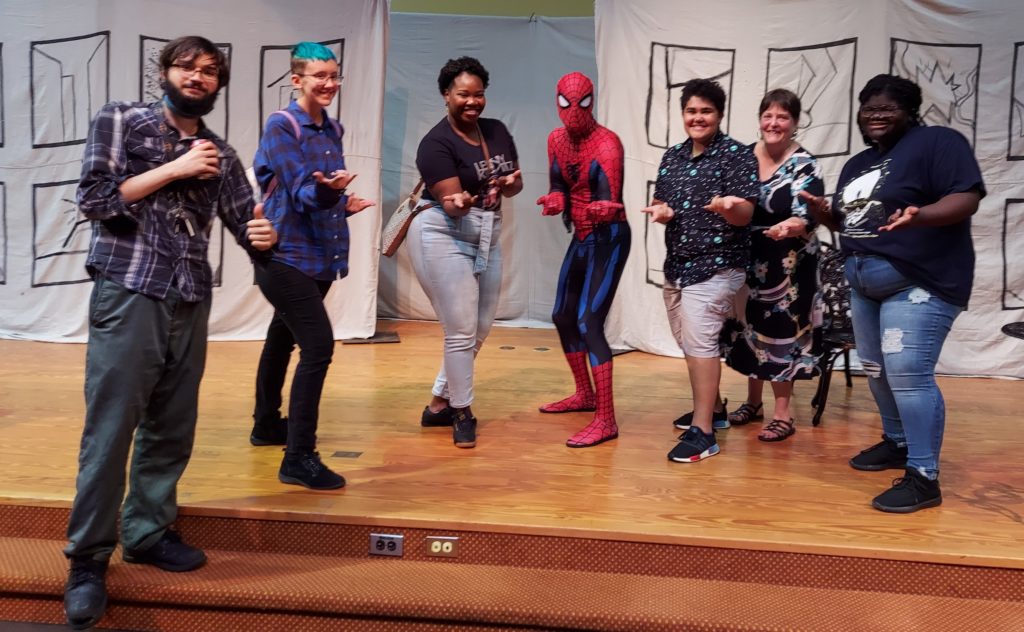
When they were able to meet in-person last summer, Homan said, the sense of relief among the teens was palpable. While this year’s program opened virtually the last weekend in January, they hope to meet in-person more throughout the year and even take a field trip or two, such as visiting the Immersive Van Gogh exhibit in Pittsburgh.
Gates is looking forward to being face-to-face for discussions.
“I like seeing peoples’ reactions to things,” he said. “I really like having conversations about books and arguing with people, but not in a bad way. If they have something they liked about the book and I have something I would have changed about the book, I like having those conversations in person.”
Whether virtual or in-person, Homan said they plan to continue to emphasize that they aren’t giving lessons or trying to teach but rather building community by modeling kindness, trust, respect, empathy and active listening. Through that, TRL’s approach to actively engaging youth in the humanities becomes a two-way street between adults and youth.
“We’re learning from them and they’re learning from us,” Homan said. “And that builds community, too. It’s not a top-down relationship. We’re there to monitor and keep things respectful and on the rails, but also let them know that we’re learning from each other, that they have a lot to teach us, too, and that’s something they don’t always have. Hopefully we get to give that to them.”
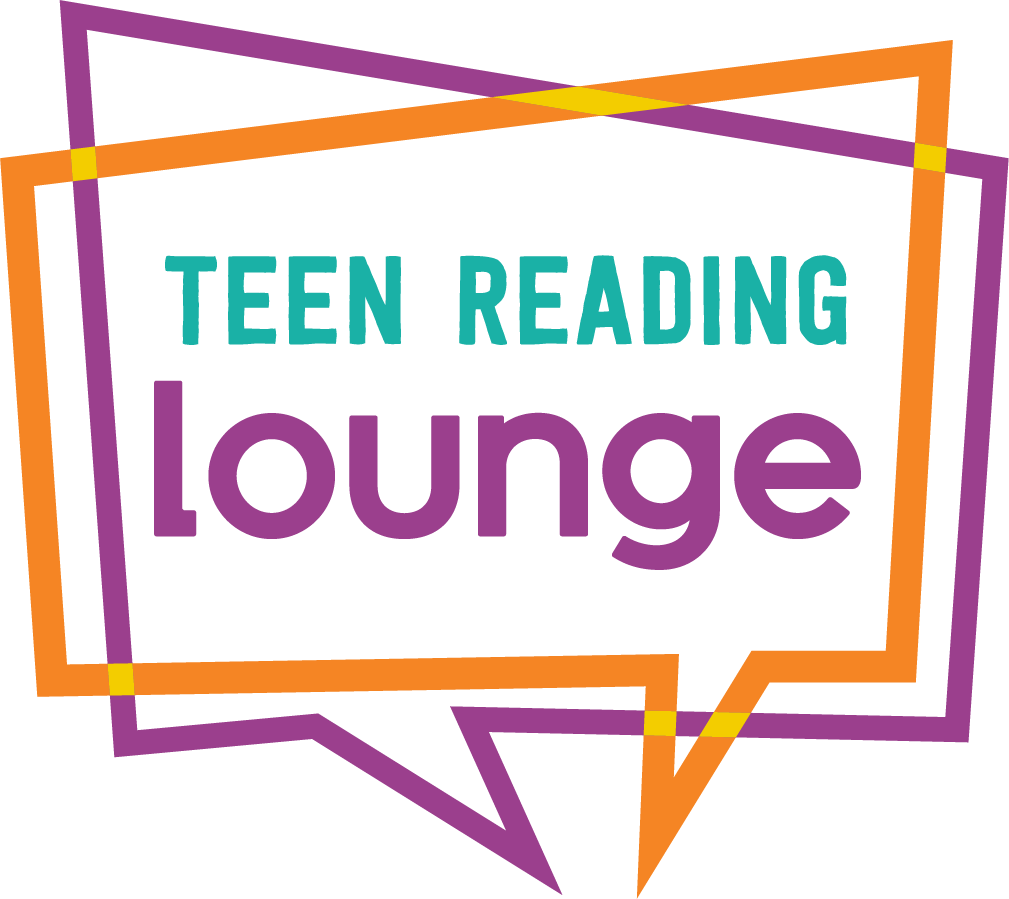
Teen Reading Lounge is made possible by Library Services and Technology Act (LSTA) funds from the U.S. Institute of Museum and Library Services administered by the Office of Commonwealth Libraries, Department of Education, Commonwealth of Pennsylvania, Tom Wolf, Governor. The views, findings, conclusions, or recommendations expressed in this website do not necessarily represent those of the U.S. Institute of Museum and Library Services or the Department of Education, Commonwealth of Pennsylvania. Additional support is provided by the National Endowment for the Humanities, generous individuals, foundations, and corporations.
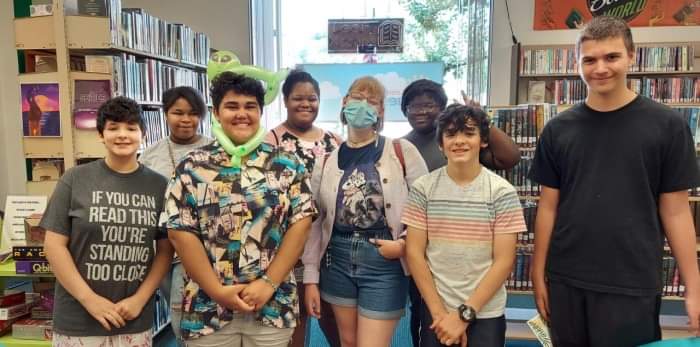
![[color – dark bg] PA SHARP FINAL FILES DB 72dpi [color - dark bg] PA SHARP FINAL FILES DB 72dpi](https://pahumanities.org/uploads/files/elementor/thumbs/color-dark-bg-PA-SHARP-FINAL-FILES-DB-72dpi-phgl7aimtfdpzt2rscvl43ksfv3asbbls19lsvuacw.jpg)
